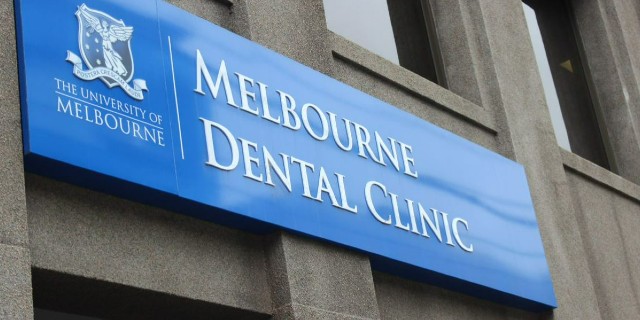Easing the way to Clinical Practice
The Dental Clinical Mentoring Program builds students’ clinical skills in their final year of study and first year of clinical practice.
The first six months or so working as an oral health practitioner can be daunting.
Unlike many other health professions, dental graduates don’t have an internship or placement year to help ease them into their role. They move straight from university to treating patients and that can sometimes seem to be a lonely path to navigate.
The Dental Clinical Mentoring Program was recently developed to help final year Doctor of Dental Surgery and Bachelor of Oral Health students and recent graduates from the University of Melbourne and La Trobe University cement their clinical and case management skills.
Delivered online in six sessions, students and graduates are supported by specialists and experienced oral health practitioners, who mentor them in clinical skills and help them prepare for practice. The clinical mentoring continues during the first six months of their career.
The first three sessions occur during the final year of study. During these sessions, students are presented with cases and their mentors discuss those cases and help them map out treatment plans. The remaining three sessions occur six months after graduation when the new clinicians bring their own cases and treatment plans to the mentor group and receive advice and feedback from their mentors and peers.
“Initially, the Clinical Mentoring Program was a response to the challenges and restrictions of COVID where students were unable to complete key clinical placements, but I think this was a program we always needed to do,” says Associate Professor Roy Judge, (Master-D.Sc.(Clinical C’Work) 1997, PhD 2006) Head of Prosthodontics, Director of International, Melbourne Dental School.
“That first six months in practice is difficult. You aren’t as confident and competent as you’d like to be and a competent, confident supported young practitioner is important for a successful career path.
“This supports our alums as they go into practice and the novel part of the program is they go into practice and then come back with their own cases. They present about their patient, learn from others in the group who are going through similar things and have the guidance of the expert mentors, too.”
The program is a collaboration between Melbourne Dental School, La Trobe University, Australian Dental Association (Victorian branch), Melbourne Dental Clinic, Dental Health Services Victoria and the Australian Dental and Oral Health Therapists’ Association.
Sue Gillespie, Strategic Project Coordinator (CPD), says the mentor groups include eight to ten people and two mentors who help the mentees work through the cases and treatment plans, answer questions and share their own insights gained over years in practice.
“They are given case studies that give the groups a broad overview of the types of issues they will encounter in the workplace. It focuses on hands-on clinical skills to support students becoming early career practitioners,” says Ms Gillespie.
“The feedback from students who have participated in the programs has been very positive and the mentors who support them have also seen the program as very worthwhile. We hope to see more students taking advantage of the program and, of course, we are always keen to hear from potential mentors who are happy to share their expertise.”
Dr Mark Bowman (BDSc 1981) has been a mentor in the program three times so far and he believes it is valuable for final year students and those in the very early stages of their career.
Dr Bowman was in private practice for more than 40 years in the city and East Hawthorn. He is a consultant dentist with the Australian Government Department of Veterans’ Affairs and a clinical tutor at Melbourne Dental Clinic.
“For students, the mentoring program sessions reinforce the clinical teaching. Mentors work in pairs and can have different views on how to manage cases, so that highlights to students and early career practitioners that there can be different ways of approaching cases. We discuss questions and any areas they are having difficulty with,” he says.
“I enjoy helping people and I also gain a better understanding of what the students are learning now and where the profession is heading. I think keeping a handle on what is happening is important.”
If you would like to be involved in the clinical mentoring program, please register your interest with Sue Gillespie at mds-clinicalmentoring@unimelb.edu.au
